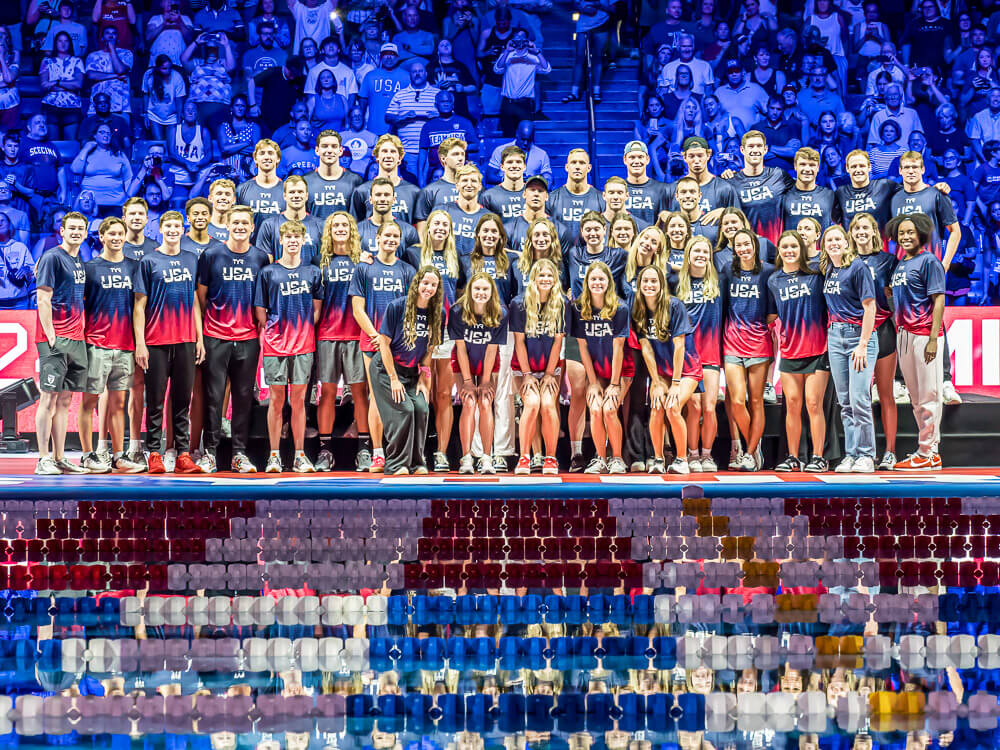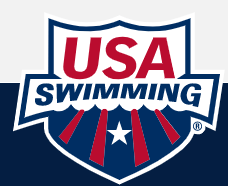United States Finishes Trials With Huge Medal Chances; How Much Will Be Gold?

United States Finishes Trials With Huge Medal Chances; How Much Will Be Gold?
The United States is looking for retribution. After falling to Australia in the gold-medal count at last year’s World Championships, the Americans have set the target of catching up at the meet which matters most, the Olympics. Now, at the conclusion of an Olympic Trials where U.S. swimmers largely out-performed expectations, the status of that comeback effort is still unclear, thanks to still-surging swimmers from Australia, China, Europe and elsewhere.
The big rub from the week: the United States is sending a squad packed full of contenders and co-favorites to Paris. Winning the overall medal count is highly probable, but the Americans did that even at the somewhat-disappointing Worlds last year. But clear gold-medal favorites? That list is Katie Ledecky in the 800 and 1500 freestyle and little more.
The U.S. women’s team won medals in every event except the 50, 100 and 200 free at last year’s World Championships, and with one month to go until Olympic swimming begins, a repeat of that finish looks very plausible.

World-record breaker Gretchen Walsh — Photo Courtesy: Peter H. Bick
Two Americans set world records in Indianapolis, and Gretchen Walsh (100 butterfly) and Regan Smith (100 backstroke) will both be tough to beat in Paris, but Walsh will have to deal with rivals such as defending gold medalist Maggie Mac Neil, world champion Zhang Yufei and fellow American Torri Huske. For Smith, Kaylee McKeown is a huge obstacle in the 100 and 200 back, as is Summer McIntosh in the 100 fly.
Kate Douglass could win gold medals in both the 200 IM and 200 breaststroke, or she could end up with a pair of bronze medals, with McKeown, McIntosh and American teammate Alex Walsh all set to shine in the medley and South Africa’s Tatjana (Schoenmaker) Smith and the Netherlands’ Tes Schouten huge breaststroke threats. Lilly King, Katie Grimes, Katharine Berkoff and Phoebe Bacon will all be popular picks to win medals, but gold might be a stretch.
Caeleb Dressel will go to Paris to defend his gold medals in the men’s 50 free and 100 fly but not as the overwhelming favorite in both events like he was four years ago. Ryan Murphy, same situation, very much in the gold-medal conversation but not alone atop that list. Bobby Finke in the 1500 free might be the United States’ best chance at men’s individual gold, but he will not have an easy path, even if Ahmed Hafnaoui is absent.
Nic Fink and Matt Fallon are strong breaststroke contenders, but neither is a lock for a medal. Hunter Armstrong and Keaton Jones are strong backstroke teammates for Murphy but in deep fields. Carson Foster headlines the fields in both IM races, but his chances of beating Leon Marchand for gold are minimal.
The U.S. has not won an international medal in the 200 fly since the Michael Phelps era. Maybe Thomas Heilman breaks that drought, but it’s no lock. Jack Alexy and Chris Guiliano in the 100 free? Luke Hobson in the 200 free? Could happen. Aside from the 400 free, there is no event in which the men can be fully counted out.
As for the relays, the Americans will be heavy favorites in the men’s 400 freestyle relay and women’s 400 medley relay. Give the men’s medley relay a slight edge over China, but that could change easily. The mixed medley relay is always a wildcard, with other countries able to mask significant weaknesses with only two swimmers per gender. And the American women are clearly behind Australia in both freestyle relays, with the men a longshot to top Great Britain.
The U.S. has captured at least 30 medals at each of the past four Olympics, and running through the various events shows how reaching that target again is quite attainable. But the gold-medal count is a wildcard.
Here are recent American gold medal counts: 11 in 2021, 16 in 2016, 12 i 2012, 12 in 2008, 12 in 2004, 14 in 2000, 13 in 1996 and 11 in 1992. The last time the American team did not reach double-digits was the 1988 Games in Seoul, also the last time the U.S. did not win the overall medal count or gold-medal count in swimming. East Germany was the top team on that occasion, two years before the country dissolved during German reunification.
To get to 10 or more yet again, the Americans will need to make small but crucial improvements over the next five weeks, including at training camps in Cary, N.C., and then in Croatia. Details in technique, racing strategy and mentality are among the aspects that must be refined before swimming begins July 27.
As it stands, the Americans have almost no true holes in this Paris team, but the final physical, mental and team-building preparations for the Games will decide whether this group of 47 swimmers can overcome Australia and reestablish its familiar position as world’s top team.

- PSYCH SHEET
- HOTEL INFORMATION
- LIVE RESULTS
- MEET INFO
- TV SCHEDULE
- DAY 1 PRELIMS RESULTS
- DAY 1 FINALS RESULTS
- DAY 2 PRELIMS RESULTS
- DAY 2 FINALS RESULTS
- DAY 3 PRELIMS RESULTS
- DAY 3 FINALS RESULTS
- DAY 4 PRELIMS RESULTS
- DAY 4 FINALS RESULTS
- DAY 5 PRELIMS RESULTS
- DAY 5 FINALS RESULTS
- DAY 6 PRELIMS RESULTS
- DAY 6 FINALS RESULTS
- DAY 7 PRELIMS RESULTS
- DAY 7 FINALS RESULTS
- DAY 8 PRELIMS RESULTS
- DAY 8 FINALS RESULTS
- DAY 9 FINALS RESULTS
- FULL RESULTS BOOK




Indeed it would be tantamount to a miracle for the undoubted Might of the US to be humbled. Its a competition akin to ‘David’ (little Australia with 26 million) versus the “Goliath” (behemoth of the US 340 million). The unparalleled monetary largesse of their collegiate system and boundless commercial sponsorship. Minnow Australia would have to perform above optimum levels and still rely on the rest of the World to whittle away at the USA for anything but Juggernaut US domination to continue, as per usual.
Hopefully miracles occur!
Great summary.
AUS can hardly beat the US. The winter swimmers are in summer in Paris.
As I said it would take a miracle for a minnow like Australia with a population 13 times smaller than gargantuan USA to win.
Australia has only bested the US once at the Olympics. That was the home games in 1956. So I doubt that NBC will have to resort to using a dubious counting method of medals to top the table as they did at Fukuoka!